Struggling with the environmental impact of plastic? Finding truly sustainable bag options can feel overwhelming. Jute bags offer a natural, strong, and genuinely eco-friendly choice that makes a positive difference.
Jute bags are superior because they come from a renewable plant, break down naturally, and are very strong. Unlike plastic or synthetics, they don’t pollute for centuries, making them a truly sustainable choice for environmentally conscious businesses.
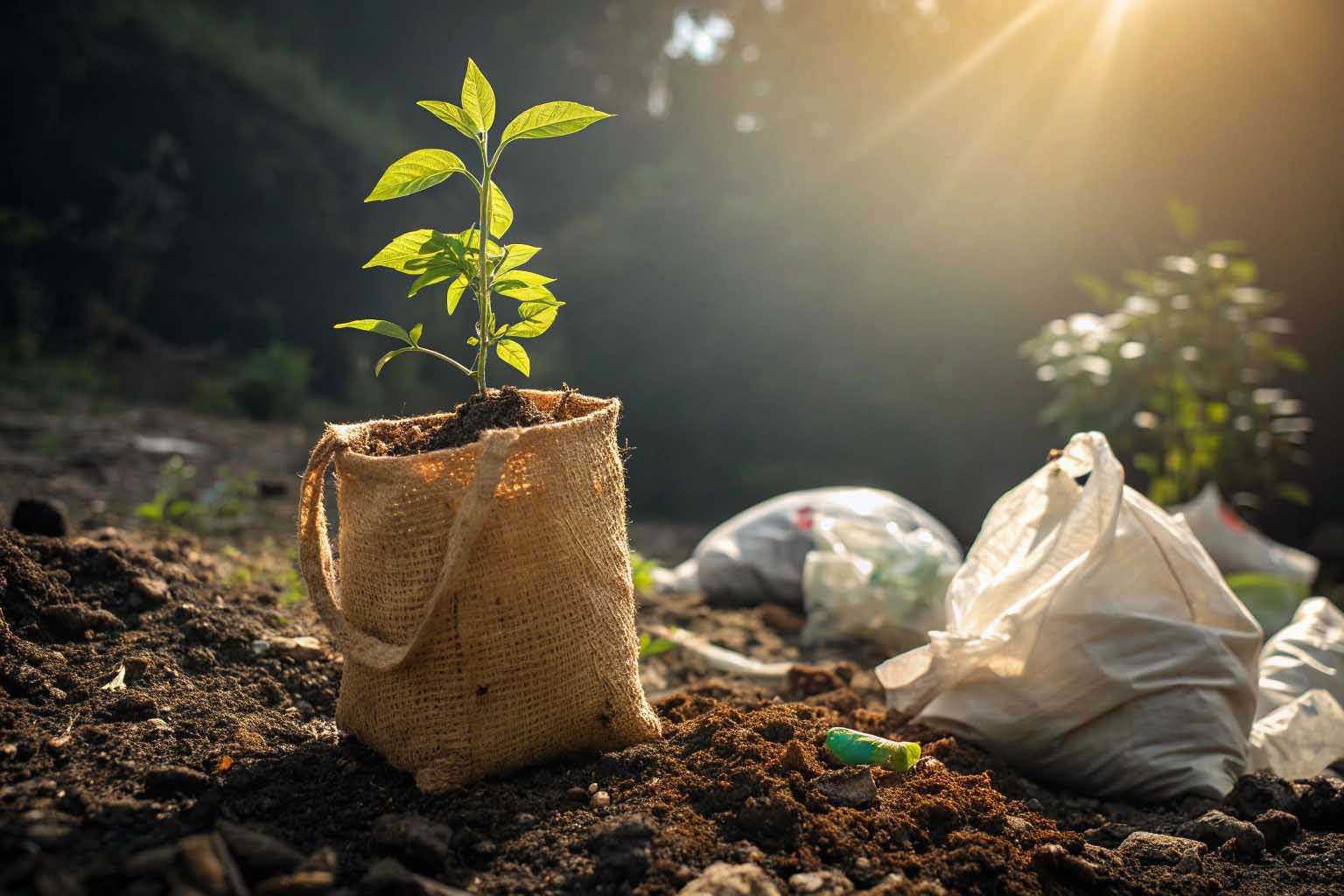
That’s the quick answer, but I know you need more details to make the right sourcing decision for your business or event. Over my decade in the eco-friendly bag industry, I’ve seen the shift towards sustainable materials like jute. Let’s break down exactly why jute stands out compared to plastic or synthetics like PP woven bags. We’ll explore the specifics so you can feel confident in your choice.
What makes jute bags a sustainable alternative to plastic bags?
Wondering if jute really helps the planet compared to plastic? Choosing sustainable materials can feel confusing. Jute’s natural lifecycle makes it a clear win for eco-conscious sourcing decisions.
Jute is sustainable because it’s a fast-growing rain-fed crop needing few pesticides or fertilizers. It absorbs CO2, is fully biodegradable and compostable, returning nutrients to the soil, unlike persistent plastic.
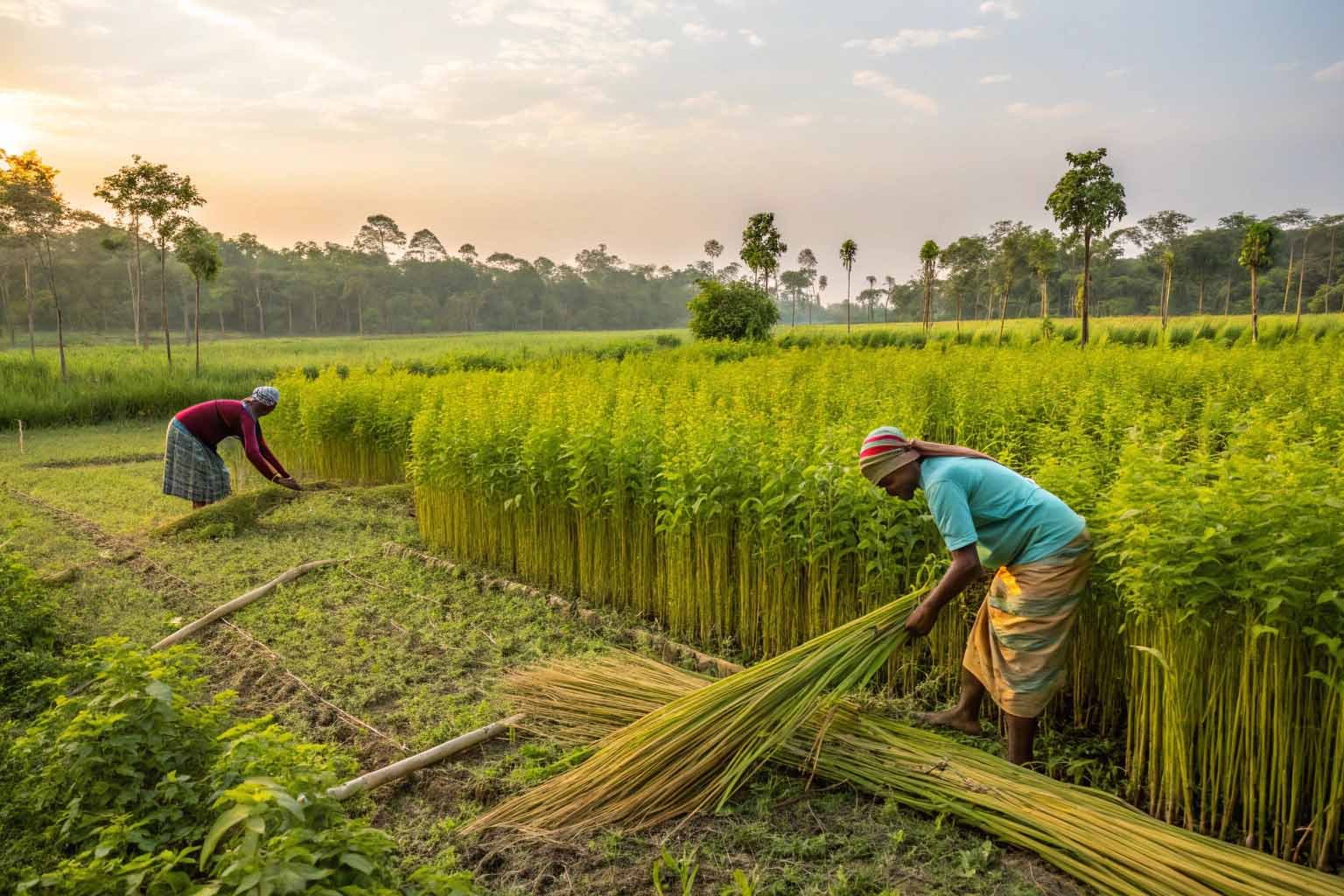
Jute’s sustainability starts right from the ground up. I remember visiting a supplier partner years ago and seeing the jute fields firsthand. It grows incredibly fast, often relying just on the seasonal monsoon rains, which minimizes the need for extensive irrigation systems common with other crops.
From Field to Fibre: Jute’s Eco-Credentials
Unlike crops like cotton, jute generally requires minimal chemical intervention1. This means fewer pesticides and fertilizers are used during cultivation. Less chemical runoff into rivers and groundwater is a huge benefit for the local environment and communities. It’s often called the ‘golden fibre2,’ not just for its colour, but also for its economic and ecological value in the regions where it grows. This low-input farming makes it inherently more sustainable than resource-intensive synthetic material production.
Carbon Sink & Biodegradability
Here’s something really important: the jute plant absorbs a significant amount of carbon dioxide (CO2) from the atmosphere as it grows – much more than trees over the same area. This helps fight climate change. Then, after a jute bag has served its purpose, it breaks down completely through natural decomposition. If composted, it typically degrades within a few months, returning organic matter to the soil. Plastic bags, on the other hand, can persist for hundreds of years, breaking down into harmful microplastics. Think about that long-term difference in environmental burden.
| 特徴 | ジュート | Plastic (Typical Single-Use PE) |
|---|---|---|
| ソース | Plant Fibre (Renewable) | Fossil Fuels (Non-renewable) |
| Growth | Rain-fed, low chemical input | Energy-intensive production |
| 終末期 | Biodegradable, Compostable | Persists, creates microplastics |
| CO2 Impact | Absorbs CO2 during growth | Releases CO2 during production |
| Resource Use | Minimal water/chemicals | High energy/fossil fuels |
How do biodegradable jute bags reduce environmental pollution?
Worried about bags ending up polluting landfills or, even worse, oceans? Plastic pollution is a massive global problem. Biodegradable jute directly tackles this issue by decomposing naturally after use.
Jute bags reduce pollution because they biodegrade, unlike plastics that persist for centuries. They don’t break into microplastics harming wildlife or soil. Their natural decomposition avoids adding to landfill burden or ocean contamination.
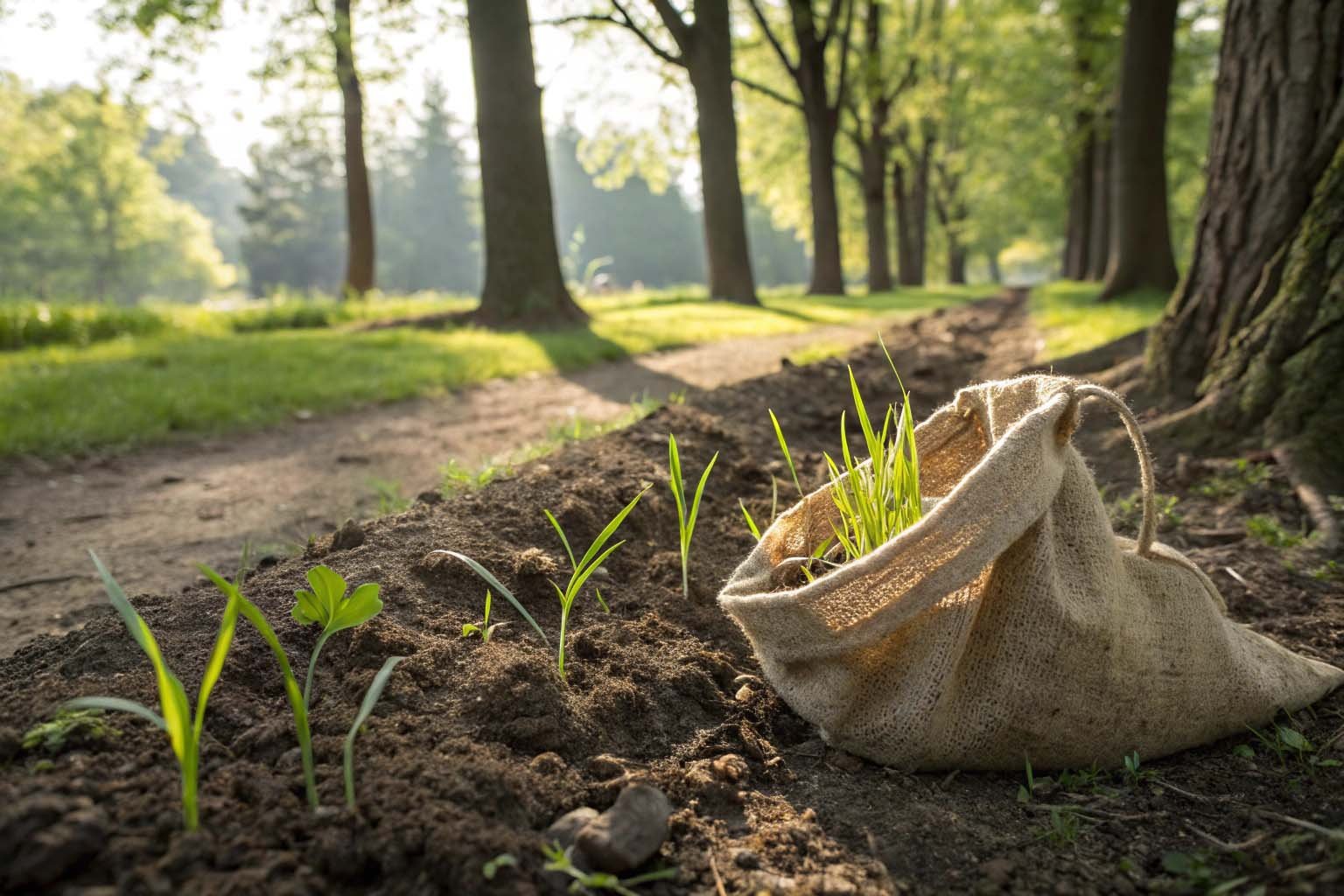
The most significant way jute bags help reduce pollution is through their end-of-life cycle. I’ve worked with clients deeply concerned about the final destination of their branded bags – they don’t want their logo contributing to waste problems. Jute provides peace of mind here.
Breaking Down Naturally
When a jute bag is eventually discarded, perhaps after many uses, natural microorganisms in soil or compost break it down. The fibres decompose into organic matter, essentially becoming part of the earth again. This process completely avoids the long-term pollution legacy left by plastic bags. There are no toxic residues, just natural decomposition. This contrasts sharply with plastics that clog landfills for generations or require energy-intensive recycling processes (which often just delays disposal).
Avoiding the Microplastic Menace
Plastic bags, even those labelled ‘degradable’, often just fragment into smaller and smaller pieces – microplastics3. These tiny plastic particles contaminate soil, water, and air. They enter the food chain when ingested by animals, including marine life, and ultimately can end up in humans. Jute, being a natural fibre, simply biodegrades. It doesn’t create microplastics. This is a crucial distinction for protecting ecosystem health, especially our oceans which are tragically choked with plastic debris4. Choosing jute means actively reducing the potential for microplastic pollution stemming from your bags.
Are jute bags stronger and more durable than polypropylene (PP) woven bags?
Need bags that can handle heavy loads and last through repeated use? Clients often ask me how ジュート stacks up against synthetics like PP woven bags in terms of strength. Jute offers impressive natural strength.
Jute bags are very strong and durable, often comparable to or even exceeding standard PP woven bags in carrying capacity for their weight class. Their natural fibres provide high tensile strength, making them reliable for repeated use.
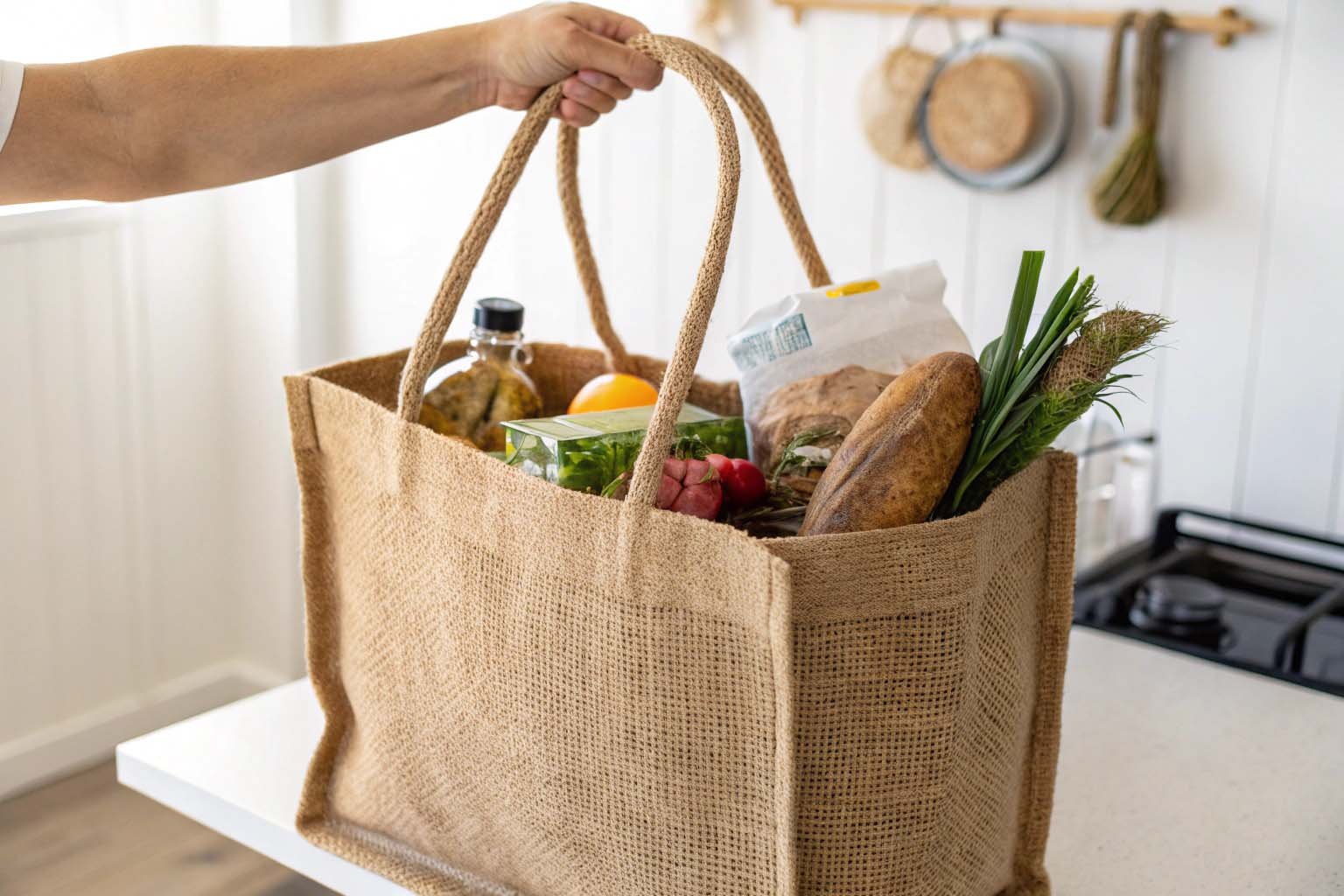
This is a common question, especially from businesses like wholesalers or event organizers who need bags to hold significant weight or endure frequent handling. People sometimes assume synthetic automatically means stronger, but natural jute fibre is surprisingly tough.
Natural Fibre Strength Explained
Jute fibres possess high tensile strength. This simply means they can withstand a lot of pulling force before breaking. It’s this natural characteristic that makes jute fabric inherently strong and resistant to tearing under load. Think about traditional sacks used for transporting coffee beans, grains, or potatoes – historically, many were made from jute or hessian precisely because of this robustness. A well-constructed jute bag can comfortably carry heavy groceries, books, or event materials without concern.
Jute vs. PP Woven: A Practical Comparison
Polypropylene (PP) woven bags, those shiny, often plasticky reusable bags, are also known for their strength and water resistance. However, jute often has a more substantial, robust feel. While a basic jute bag isn’t waterproof (though laminated options exist), its fibres are less likely to snag or tear abruptly compared to some thinner PP woven materials. PP woven bags are derived from fossil fuels and aren’t biodegradable. Jute offers comparable strength with a much better environmental profile.
| 特徴 | ジュートバッグ | PP Woven Bag |
|---|---|---|
| Material Origin | Natural Plant Fibre | Synthetic Polymer (Plastic) |
| Tensile Strength | 高い | 高い |
| Feel/Texture | Robust, natural, breathable | Lighter, smoother, plasticky |
| 再利用性 | Excellent, lasts many uses | Excellent, lasts many uses |
| Weakness Example | Can weaken if kept constantly damp | Can become brittle with UV exposure |
| 終末期 | Biodegradable / Compostable | Not biodegradable (recyclable) |
For most common applications like shopping bags, promotional totes, or conference bags, jute provides more than enough strength and durability, plus the huge advantage of biodegradability.
Why do governments and brands promote jute bags for shopping?
Have you noticed more 麻袋 being offered by retailers or used in campaigns? There’s a clear reason governments and brands are increasingly promoting them. They see jute as a viable solution to plastic waste and a way to signal environmental responsibility.
Governments promote jute bags to comply with plastic bag bans and reduce municipal waste management costs. Brands use them to enhance their green image, meet growing consumer demand for sustainability, and offer a durable, reusable alternative.
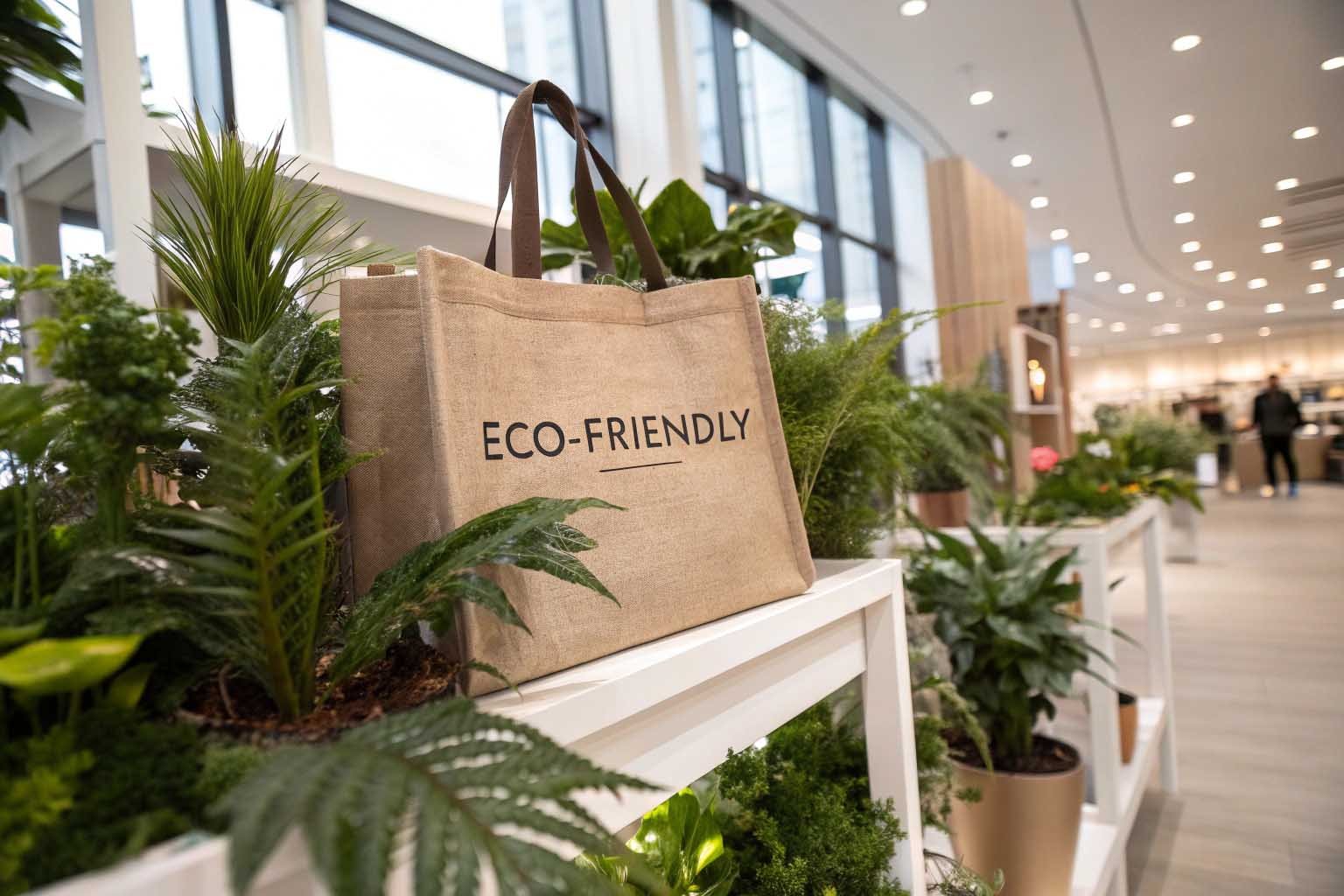
The rise of jute isn’t just a random trend; it’s driven by significant factors at both policy and corporate levels. I’ve helped numerous clients navigate this shift as they look for sustainable alternatives for their packaging or promotional needs.
Government Action and Plastic Bans
A major driver is legislation. Following the EU’s lead, many countries, states, and cities worldwide have implemented bans or fees on single-use plastic bags. This forces retailers and consumers to adopt reusable alternatives. Jute fits the bill perfectly – it’s reusable, durable, and made from a natural, renewable resource. Promoting jute helps governments achieve their waste reduction targets and ease the burden on landfill sites and recycling infrastructure, which struggles to cope with plastic volumes.
Brand Image and Corporate Social Responsibility (CSR)
Consumers today are increasingly informed and concerned about environmental issues. They actively prefer supporting brands that demonstrate genuine commitment to sustainability. Offering jute bags – whether for sale, as part of a loyalty program, or for event giveaways – is a visible and tangible way for a company to showcase its green credentials. It aligns with Corporate Social Responsibility (CSR) goals and resonates positively with customers. I’ve personally seen feedback where customers appreciate a brand more simply because they switched from plastic to jute bags. It sends a powerful message.
Can jute bags replace single-use plastics in daily life?
Feeling overwhelmed by the amount of single-use plastic in your daily routine? Wondering if switching to jute can make a real difference? Jute bags offer a highly practical and versatile way to significantly cut down on everyday plastic consumption.
Yes, jute bags can effectively replace many single-use plastics in daily life. They are ideal for grocery shopping, carrying everyday items, farmers market trips, gift packaging, and more. Their strength and reusability make them a practical substitute.
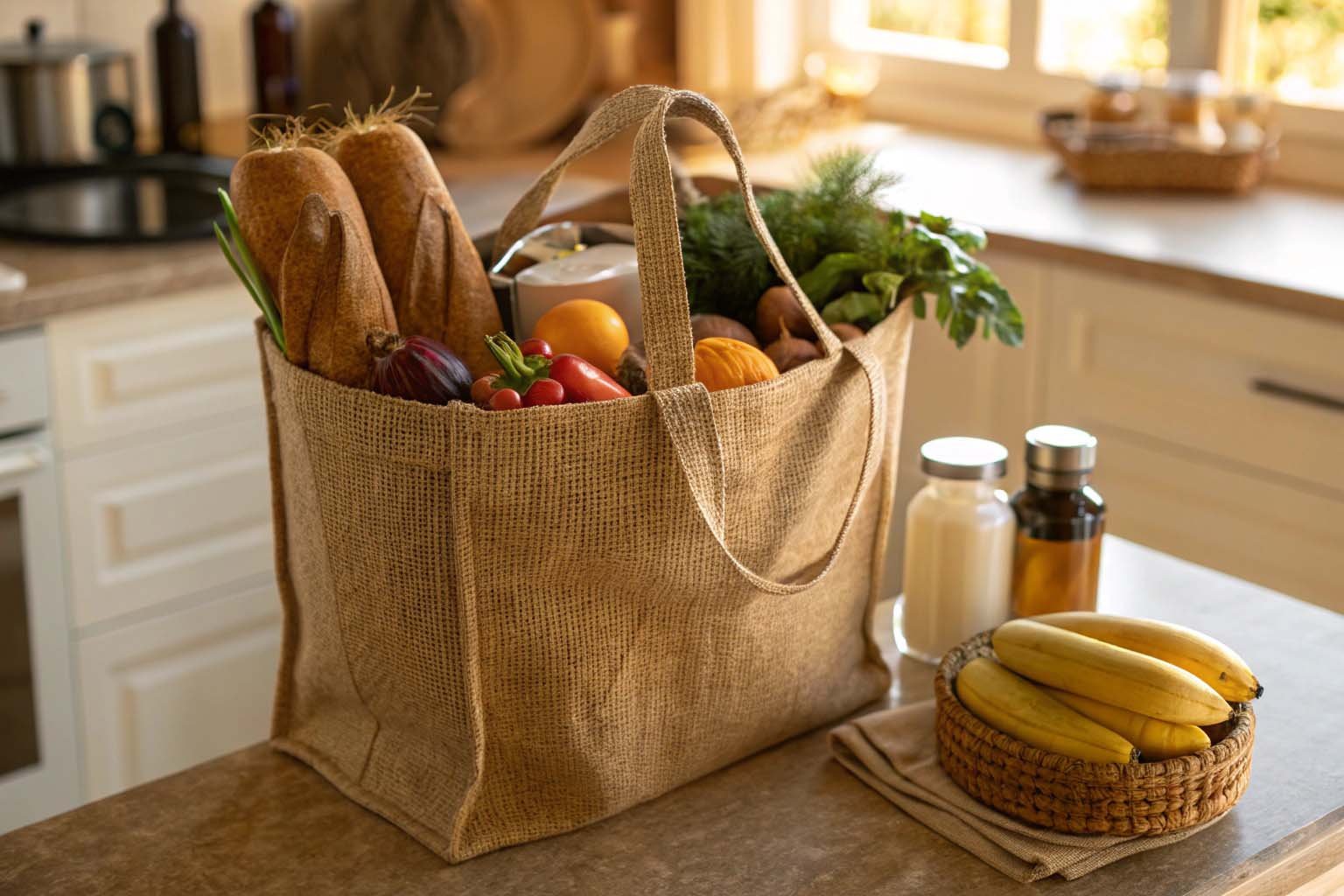
Absolutely, making the switch to jute bags can drastically reduce your reliance on throwaway plastic bags. It mainly involves forming new habits, and jute’s practicality makes that transition easier than you might think. I’ve found it simple to integrate them into my own life.
Everyday Swaps Made Simple
Consider the common uses for single-use plastic bags and how easily jute can take their place:
- 食料品の買い物 This is the most obvious and impactful swap. Keeping a few sturdy jute totes in your car or near the door means you’re always ready. They handle heavy cans and bulky items much better than flimsy plastic.
- Carrying Daily Essentials: Use a smaller jute bag for your lunch, books, gym clothes, or items for work or school. It’s more comfortable to carry and far more durable.
- Farmers Markets & Local Shops: Jute bags are perfect for carrying fresh produce, bread, and other local finds.
- Gift Bags: Instead of paper or plastic gift wrap, use a decorative jute bag. The bag itself becomes part of the gift – practical and eco-friendly!
- Storage: Small jute drawstring bags are great for organizing items at home.
Practical Points to Remember
While incredibly versatile, jute isn’t the solution for every single scenario where plastic is used. Standard, untreated jute isn’t waterproof, so it might not be the best choice for carrying very wet items (like dripping swimwear) unless you opt for a jute bag with a laminated lining. However, for the vast majority of situations where we automatically reach for a single-use plastic bag, a reusable jute bag is a superior alternative – stronger, longer-lasting, and infinitely better for the planet. The biggest step is simply remembering to bring them with you!
結論
Choosing jute over plastic is a clear, positive step towards sustainability. These bags are strong, natural, biodegradable, and help reduce pollution, making them an excellent, responsible choice for businesses and individuals alike.
-
Learn how jute’s low chemical use promotes environmental health and sustainability. ↩
-
Explore the importance of jute as the ‘golden fibre’ and its impact on economy and ecology. ↩
-
Understanding microplastics is essential for recognizing their impact on ecosystems and human health. Explore this link for in-depth insights. ↩
-
Discover the severe consequences of plastic debris on marine ecosystems and why reducing it is vital for ocean health. ↩


